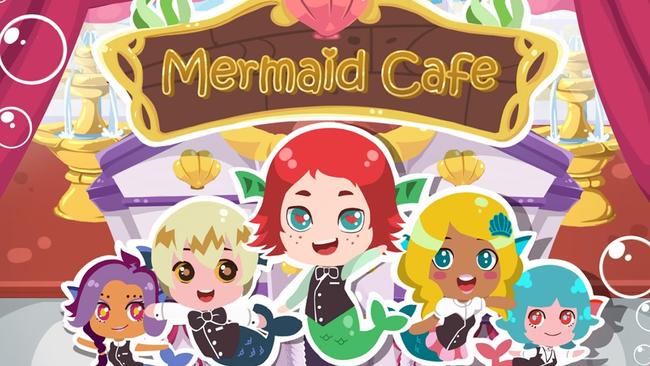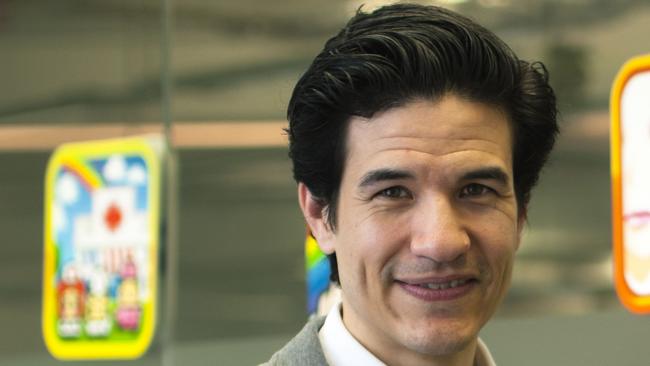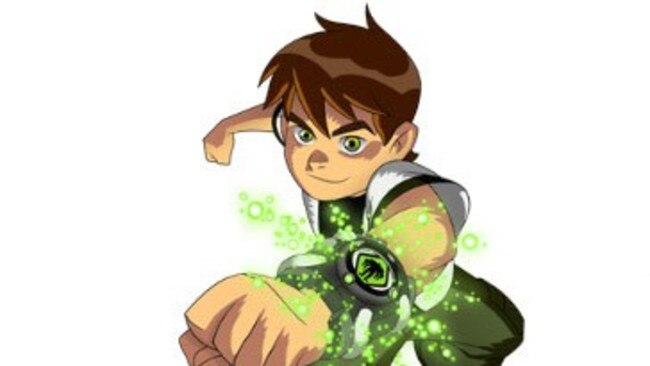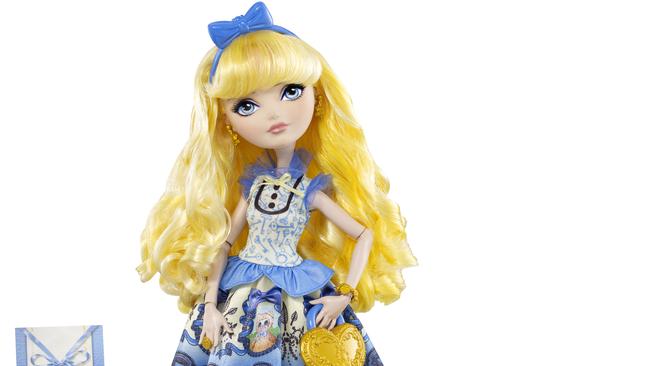Siri and Cortana allow infants to access Astro Boy and Thomas the Tank Engine on devices
Meet the new content generators in the burgeoning children’s entertainment industry: kids as young as two.

Meet the new content generators in the burgeoning children’s entertainment industry: kids as young as two.
Instead of parents deciding what apps and video to load on their preschoolers’ devices, many children now select their own content independently of parental control. It’s a trend apparent in just a few short years.
And they don’t even need to be able to read. Voice recognition software, such as Apple’s Siri and Microsoft Cortana, allows pre-reading age children to search for their favourites, while touchscreens make it easy for podgy toddler fingers to poke at apps.
Where preschoolers venture, marketers follow, collating clicks to profile the online entertainment desires of this youngest generation of digital natives. Then they make content accordingly.
Joanne Orlando, an expert in technology and learning at the University of Western Sydney, has documented some astonishing cases after observing how children use technology.

“I’ve just visited a family where the child was nearly three and she was using the voice command on Google to find YouTube clips. She was very competently using the iPad and getting the voice command setup and putting in the words,” Orlando says.
“I also found kids who were getting their own tablet for their first birthday, so it’s definitely happening a lot younger than 5-years-old now.”
She said kids were using technology much more independently of their parents. While some parents chose the apps their children used, others left selections to their children.
“They tend to reply on what their children want. Children do need support, but once they get into an app you don’t necessarily know what it will be like, the amount of in-app purchases and the type of content.
“Unless they get recommendations of first rate apps and why they’re good, it’s a really tricky thing for parents, I think.”

Robby Yung is chief executive of Hong Kong based Animoca Brands, which is building games for multinational Mattel around brands such as Thomas the Tank Engine, Astro Boy and Ever After High. Yung is upfront about the preferences of preschoolers.
“We’ve passed the tipping point with voice search both on Google’s platform and with Apple (Siri). Because children are getting devices, particularly mobile devices, at an earlier age, one of the hurdles they are overcoming is their ability to input into the devices to get content they like.
“At two or three they’re not typing yet but they can use voice input to get the content they like. Sit down with a two-year-old at any time and watch them go.”
Moral and ethical questions surround the collection of data about young children. In the US, the Children’s Online Privacy Protection Act (COPPA) makes it illegal to release personal information collected from anyone under 13 or to make it publicly available in identifiable form.
But that doesn’t stop collection of anonymous metrics to gain insights into the preferences of children.

The age of a viewer can be easily worked out based on what they watch. So profiling toddler online preferences can be easy. There is an argument that this is no different from, say, collecting TV ratings on kids shows.
“In the case of somebody like Google, they would for sure not be collecting data about children but I think they probably collect abstract general data about what they believed the age groups consuming their channel would be,” Yung told The Australian.
So should Yung design games based on what kids want or what parents think is appropriate?
“We find more and more kids, younger and younger, are searching for the content themselves, and finding it and saying ‘this is what I want’, and bringing the tablet to mum and dad and saying: ‘Please put in your password and pay for it.’
“We’re basically catering to the children’s audience now, in that when we market our games, we’re marketing to the children, because they’re our target audience. But we’re conscious that the games must be family friendly. The parents have to approve the nature and type of the content, and they have to be happy with the price point.”

“There’s always a clear guideline. Because of COPPA in the US, we have to be very careful about what kind of information we are collecting and to make sure there’s nothing personally identifiable about it.
“As long as it’s abstract data, then yes, absolutely we use it to make our products better all the time.”
Orlando sees benefits and disadvantages of catering directly to preschooler whims.
“There’s definitely good and bad. Parents don’t necessarily know exactly what their children like and exactly what interests they pursue, so having children make some contribution to that is definitely good.
“The downside of that is that parents having a contribution to that also helps to broaden children’s interests and the things they’re doing online. They can throw in a whole lot of other ideas that maybe the child hasn’t explored yet.
“But if this data is being collected just for profit making, then that has big ethical issues.”




To join the conversation, please log in. Don't have an account? Register
Join the conversation, you are commenting as Logout